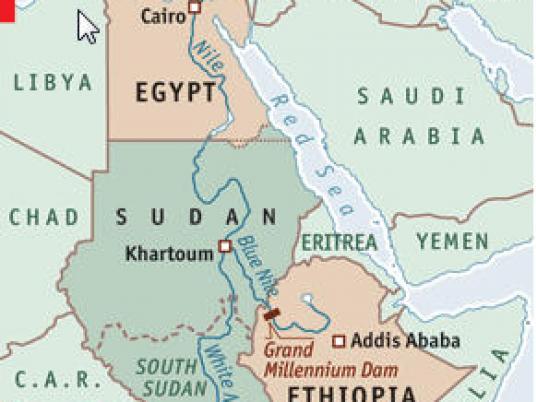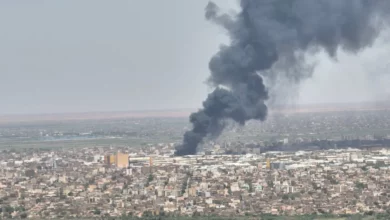
The parliaments of five Nile Basin states have endorsed an agreement that aims to ensure the "equitable utilization" of the river's water, meaning it only needs the ratification of one more parliament before it can go into effect.
The Cooperative Framework Agreement (CFA), also known as the Entebbe Agreement, was signed in 2010 by five upstream Nile Basin countries with a view to increasing their access to Nile water – a move that was opposed at the time by downstream states Egypt and Sudan.
Water distribution among Nile Basin states has long been regulated by a colonial-era treaty giving Egypt and Sudan the lion's share of river water.
In 2010, Ethiopia, Kenya, Uganda, Rwanda and Tanzania – all members of the 11-member Nile Basin Initiative (NBI) – took the initiative and signed the deal.
Burundi, for its part, signed the agreement one year later, but its parliament has yet to endorse it.
Egypt and Sudan, however, have consistently refused to ratify the deal, dismissing it as a violation of international law and insisting on maintaining the colonial-era treaty.
For several months, Ethiopia's mega-dam project had been at the center of a diplomatic row between Cairo and Addis Ababa.
While Ethiopia views the project as necessary to its economic development, Egypt fears it could lead to a marked reduction in its historical share of Nile water.
In the declaration of principles, Egypt and Sudan acknowledged the fair distribution of Nile water. But an Egyptian water expert says this only applies to the Ethiopian dam.
"Egypt and Sudan are unlikely to sign the Entebbe Agreement," Hani Raslan told The Anadolu Agency.
"The declaration is not related to the CFA, because the former deals only with the differences on the Ethiopian dam in terms of filling the dam's reservoir or its capacity," he explained.
"The CFA, on the other hand, deals with water distribution ratios between states of the Nile Basin," he added.
One article of the CFA that relates to "equitable and reasonable utilization [of water]" has been rejected by Egypt and Sudan – both nations with little rainfall.
"Nile Basin States shall, in their respective territories, utilize the water resources of the Nile River System in an equitable and reasonable manner," the article reads.
"In particular, those water resources shall be used and developed by Nile Basin states with a view to attaining optimal and sustainable utilization thereof and benefits therefrom, taking into account the interests of the Basin states concerned, consistent with adequate protection of those water resources," it adds.
"Each Basin state is entitled to an equitable and reasonable share of the beneficial use of the water resources of the Nile River System," the article stresses.
Egypt and Sudan, however, say the article does not take into consideration upstream nations' other water resources – including rainfall and groundwater – compared to Egypt's and Sudan's lack of other water sources.
The Democratic Republic of Congo (DRC), another signatory of the NBI, refused to sign the CFA, citing a lack of consensus when the six signatories first inked the deal.
South Sudan, for its part, has shown interest in signing the treaty, despite Egyptian calls on Juba not to "rush" into signing the deal.
Eritrea, an observer member of the NBI, joined the initiative because it contributes a limited amount of water via the Atbarah River – the Nile's last tributary before it reaches the Mediterranean Sea.
It does not, however, enjoy the right to vote.
Implementation of the CFA still needs the endorsement of six countries. Five have formally signed the deal and it is now up to Burundi's parliament to provide the deal with a final push.
"The [Burundian] government's ratification of the deal is not enough because under most countries' constitutions, parliament's endorsement is what matters," Raslan told AA.
"And the endorsement of international treaties usually requires a 'yes' vote from at least two thirds of the assembly's lawmakers," he added.





